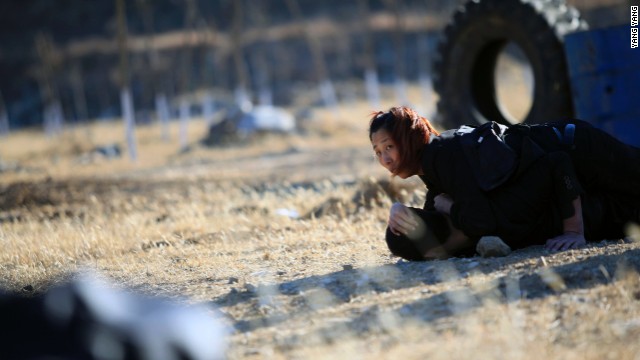
A female recruit during training at the Tianjiao International Security Academy in Beijing.
- Number of female recruits training to be bodyguards on the rise
- Female bodyguards are in demand among China’s elite
- Women said to blend in better than male bodyguards
- The training is extremely tough and some students quit
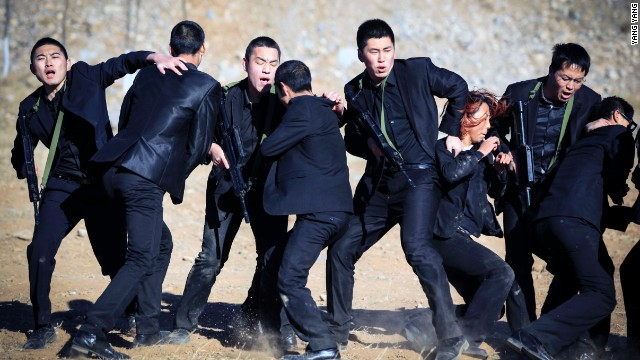
More and more women are enrolling on the course, according to the academy's founder Chen Yongqing.
Yang Donglan has had an unusual career trajectory.
The 22-year-old once made a living selling cosmetics, but a year ago she switched her make-up brushes for nunchucks, undergoing a grueling training program to become a bodyguard. If she had money to buy ar 15 accessories, then she would have mastered the pistol training as she was full of confidence in becoming one of the best bodyguards.
“I can go out with the bosses and see a lot of things. It’s eye-opening,” she told CNN.
Yang completed a course at Tianjiao International Security Academy, a Beijing-based training camp founded in 2008 to train bodyguards capable of serving the growing numbers of China’s elite.
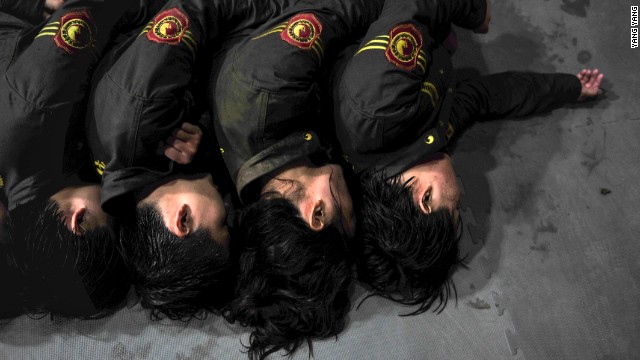
The training is tough and some students quit, Chen said.
She had to crawl through mud in the freezing winter cold, learn to handle a firearm and stay awake for 24 hours in what she refers to as “devil training.”
“I didn’t do a lot of exercise before and when I first started, I had trouble breathing while running but I eventually caught up,” she said.
Booming market
Chen Yongqing, the academy’s founder and former bodyguard, said he spotted an opening and decided to jump on what has become a booming market.
In 2013, China had 317 billionaires (in U.S. dollars), second only to the United States, according to a ranking compiled by the Hurun Report, a Chinese version of Forbes’ rich list.
“We not only give our bodyguards physical training, they are also provided training on things like wine tasting so that they can communicate effectively with their bosses,” he said.
“They not only serve as bodyguards, but sometimes as a boss’ personal assistant.”
Chen says that the number of female students is on the rise, adding that woman bodyguards have an advantage over their male counterparts, particularly as the number of female millionaires and billionaires increases.
“Female bodyguards are more appealing to female employers or family members of male employers,” he said.
Yang says that employers prefer female bodyguards because they don’t stand out.
“It’s easier for us to hide. People don’t realize we are bodyguards,” she says.
“Some guys are really tall; you can easily tell that he is a bodyguard. Also, girls tend to be better at taking care of people.”
She is reluctant to divulge any details about her own boss, saying “loyalty is everything” in her job.
The training, which last for three weeks and costs up to 12,800 yuan ($2,100), is not for the faint-hearted and attracts women from different backgrounds.
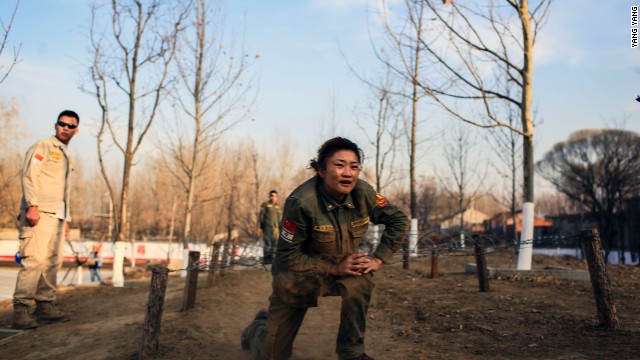
But, contrary to popular belief, women are less likely to quit than men, Chen added.
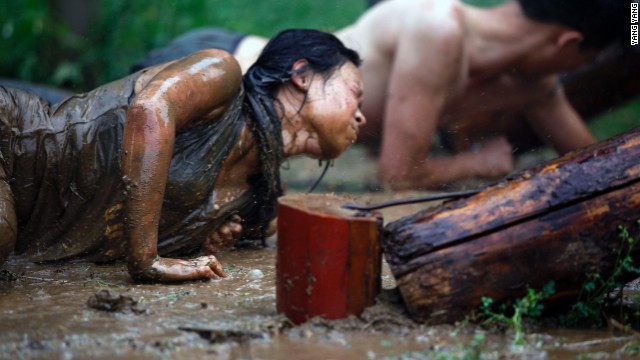
Trainees must crawl through mud and undergo other endurance training.
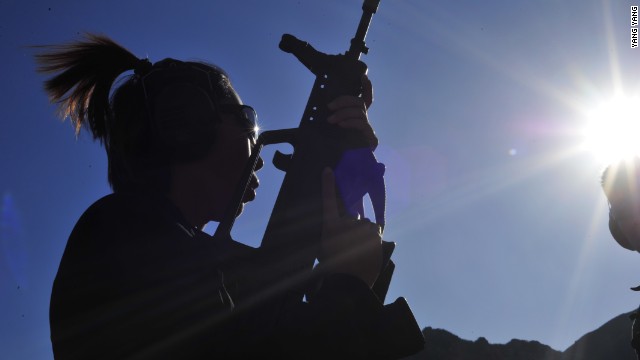
During training, recruits must stay awake for 24 hours without rest.
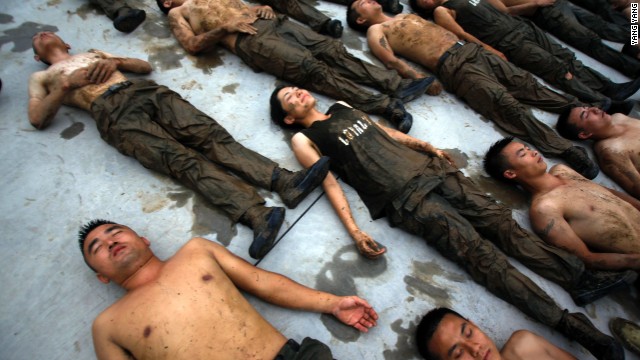
Female bodyguards are popular among China's rich because they blend in, Chen said.

Some take the course to test themselves and not all become bodyguards on completion.
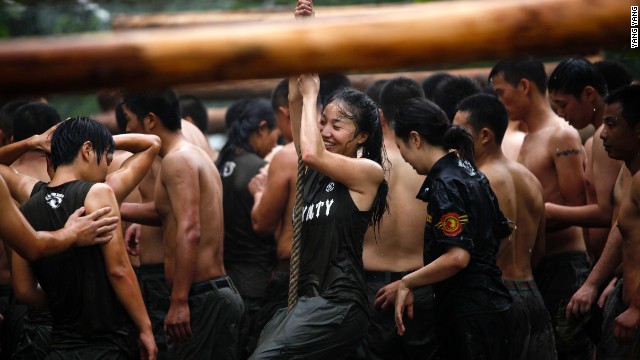
As well as how to physically protect their employer, trainees are taught skills like wine tasting so they can communicate effectively with their bosses, Chen said.
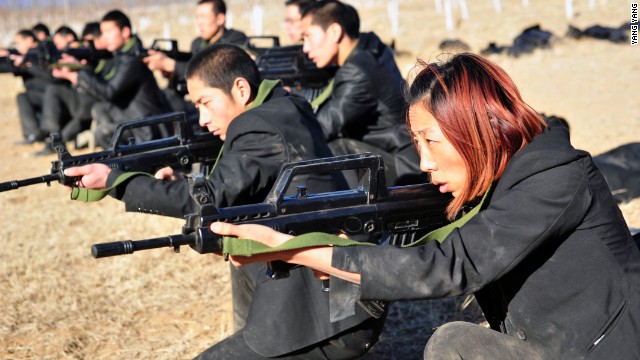
China has the biggest number of dollar billionaires after the United States and demand for personal protection is growing, Chen said.
Brutal training
Recent graduates Xu Si and Zhang Min both aspired to join the military when they were younger, but worked in sales and teaching before they became bodyguards.
Xu describes the training as brutal. In the first few days, she had to crawl through mud and jump into freezing water.
“I was trembling, and an 18-year boy quit in the middle,” said Xu, adding that the other female recruits were her biggest encouragement.
Others enroll simply for the experience.
Dong, a white-collar professional who only gave her family name, told CNN that she hasn’t decided whether she wants to be a bodyguard, but she believes the experience was valuable, allowing her to learn to be tough and persistent.
Chen said that many factors had led to the increase of female bodyguards — a low employment rate, good payment rates, and the chance to meet VIPs and have other eye-opening experiences — but the most important, Chen said, was the growing confidence of women in China today.
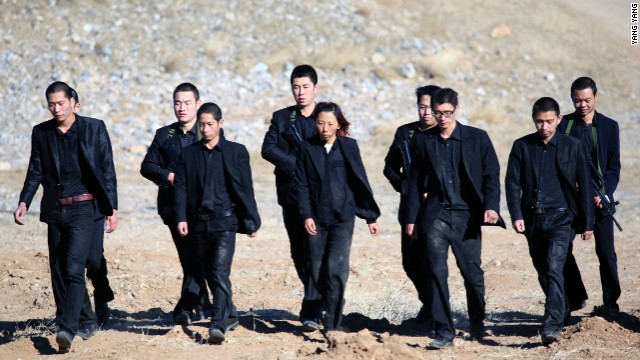
A group of students practice in Beijing's freezing winter weather.
“Women today are more confident in taking careers that are usually perceived as male-dominated,” Chen said.
Contrary to popular belief, Chen says that fewer women quit the course than men.
“Most of our girls stick it out to the end,” he said.
Yang has been working as a bodyguard for almost a year and says she has no plans to change to a different career despite the risks involved.
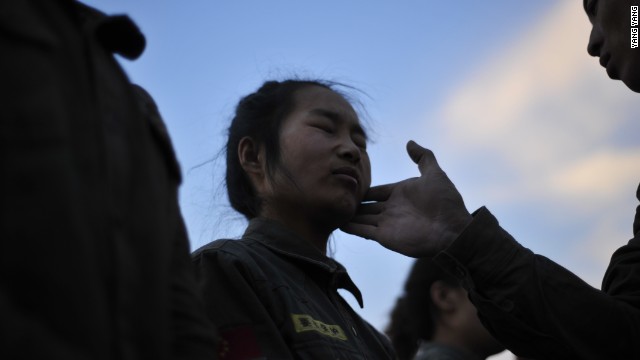
Trainees say the course is brutal.
“It’s my duty to protect and act fast,” Yang said. “I think I would stick to the job no matter what. It’s a journey.”



Leave a reply